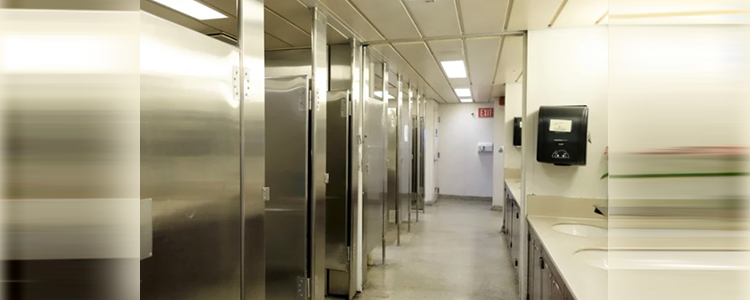— by Susan McBain, Orcas Issues reporter —
At their extended three-hour meeting on October 2, the commissioners of the Orcas Island Health Care District (OIHCD) spent most of their time on two main topics: progress on negotiations with the two major clinics — the UW Neighborhood Clinic (UWNC) and Orcas Family Health Center (OFHC); and the 2019 budget, which they must adopt by November 15.
Progress in negotiations with UWNC on the nature and cost of primary care services has been slow but steady. However, several commissioners voiced frustration over their discussions with UWNC regarding after-hours and acute care services. Commissioner Diane Boteler stated that “We’ve presented them with a lot of concrete proposals based on what we know fits with our island, and they’ve essentially said no to all of them.” Citing the lack of agreement on specifics, Commissioner Patty Miller observed, “They agreed to the concept of tracking information, but not to what they’ll track and how, and how they’ll report it.”
Boteler’s main concern is that UWNC refuses to offer after-hours callers who are not registered UW patients the option of after-hours contact with an on-island provider, when medically appropriate. “That means UW will be receiving taxpayer money from people who can’t access their services,” she said. Commissioner Art Lange noted that he plans to keep working on that issue.
UWNC did recently provide the following formal statement to the commissioners: “UW Medicine shares the interest of the Orcas community in developing a model of triage and after-hours care that meets the needs of this unique setting. We are committed to working in partnership with the hospital district, EMS and other local providers to evaluate options, including bringing forward innovative ideas from other rural settings.” But specifics are few, and the commissioners are resigned to the fact that their 2019 contract with UWNC will have no specific language in these areas. The commissioners acknowledged that if they are not able to reach agreement with UWNC on acute/after-hours care, they will ultimately have to decide if those services are important enough that they need to look for alternatives to UWNC. The contract will cover 2019 plus a possible six-month wind-down period if they decide not to renew it.
[perfectpullquote align=”right” bordertop=”false” cite=”” link=”” color=”” class=”” size=””]That means UW will be receiving taxpayer money from people who can’t access their services[/perfectpullquote]
The commissioners agreed to include in their contract negotiations a requirement for a trial period for UWNC to develop improved tracking, metrics on quality of care, and a better approach to acute care. They want the trial to start January 1, 2019 and end April 30, and they want the contract to specify two triggers that would give OIHCD the option to launch the process of contract termination: failure to start the trial on January 1, and failing results from the trial.
Progress with Orcas Family Health Center (OFHC), which is independent, has been much smoother and simpler. Boteler will provide OFHC with a list of medical services that the commissioners want, so they can identify anything they are unable to provide. OFHC is also working to develop fuller patient satisfaction metrics, as well as a tracking system and periodic review for after-hours calls, as the commissioners requested.
Commissioner Pegi Groundwater pointed out that for her, “For someone who ends up at EMS, if UW provided care for their patients and EMS had to send everyone else to OFHC, that would still be a huge improvement over what we have now with UW.” (The commissioners have already agreed that both providers will be compensated for after-hours patient visits.)
The commissioners then spent more than an hour discussing the line-item details for the draft budget. They agreed that the crucial decision is whether to keep the millage rate as low as possible or to accept a higher rate in order to have reserves for unknown contingencies.
Finally, the commissioners reviewed a petition submitted by Dr. Vincent Shu (click HERE to see the petition) with a request signed by 125 community members that OIHCD provide financial support to his clinical practice. The commissioners declined with regret to provide such support at this time, citing their budget restrictions and priorities for 2019.
The next regular OIHCD meeting will be October 9 at 4 p.m. at the Eastsound Fire Hall. The commissioners expect to hold the first public discussion of the draft budget at that meeting.
**If you are reading theOrcasonian for free, thank your fellow islanders. If you would like to support theOrcasonian CLICK HERE to set your modestly-priced, voluntary subscription. Otherwise, no worries; we’re happy to share with you.**








